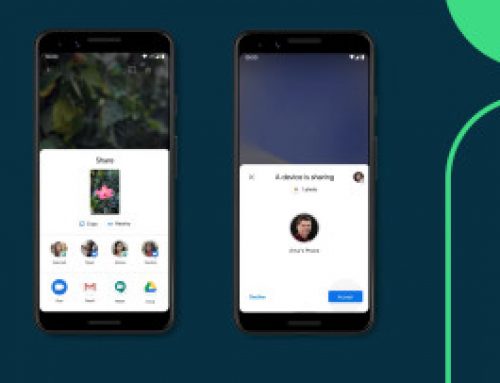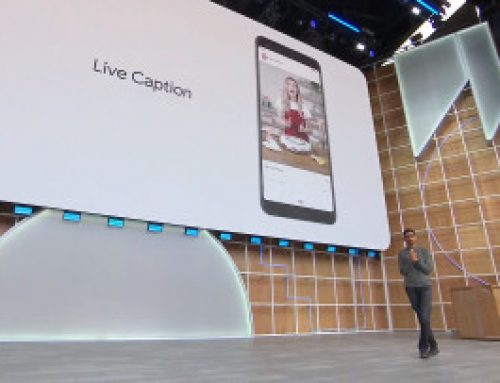
Our team has recently discovered that our readers are very interested in online courses for things like game design and Android development.
One class we found drew more attention than any other: the Complete Android Development course by Rob Percival. It turns out our readers seem very attracted to his teaching style and pace.
Rob has just released a brand new Complete Android Developer course that includes Android Nougat content, so we thought it’d be a good opportunity for our own Gary Sims to have a chat with him to see how he got into teaching Android development online.
Tell us a little bit about you! How did you get into Android development?
As a web developer I’d built a few Android apps using Cordova, and played around a little with Eclipse, but it wasn’t until I wanted to build The Complete Android Developer Course that I seriously started getting into it. I’d built iOS apps before, but hadn’t worked with Java, so there was much that was familiar, and a lot that was new.
Back in 2015 your “The Complete Android M Developer Course with Android Studio” did very well on kickstarter, what has happened since then?
The course itself was released in November 2015, and became the most popular Android Udemy course ever, which is great! We had some problems when Parse closed down in January, but the open-source Parse Server was a welcome option, and my new Android N developer courses uses that, so hopefully we’re not so vulnerable to company closures now!
You also teach courses about iOS, what are the pro and cons of learning Android development rather than iOS?
I love the openness of Android, and the feeling that they want you to be able to do interesting, OS-level stuff with your apps, whereas with iOS development you very much feel like your playing by some very strict rules. I also enjoy the stability of Android development – frequent Swift updates that change core commands make it very hard to keep up, and often send you back to the drawing board!
Having said that, I do prefer Xcode to Android Studio – it’s a more pleasant, modern-feeling development environment, and 2 to 3 minute compiling times for simple apps does get frustrating.
If there was something you could change about how apps are developed for Android, what would it be?
As I mentioned, I would like to see an improved Android Studio with a better interface and faster compiling times. I also think the basic themes are pretty ugly compared to iOS, and would like it to be easier to create attractive-looking apps.
On a more technical level, I ran into the 64K method limit in my recent course, and had to resort to using Multidex, which was a nightmare – would definitely like to see that fixed, but it’s unlikely without some core changes to the OS.
How can you Android 7.0 Nougat course make it possible for complete beginners to start down the Android developer path?
I don’t assume any coding/development experience at all, so anyone can use the course to start building apps. The advantage of using a course like this is that I show you every step in screencast form – in tutorials (Android ones especially), all too often, you get to a screen that doesn’t have the option you’re seeing, or a weird error message that takes you hours to fix.
We start by going through the Android Studio installation process (much smoother now that Java is included), and then start building apps straight away. I really do believe anyone can learn how to make apps using a course like this.
What new material did you add to the Nougat course compared to your previous Complete Android M Developer Course.
I’ve switched out quite a few of services we use, so we now use the Open Weather API for example, and Parse Server running on AWS (students get $50 AWS credit too). I’ve also introduced sections on Firebase, and of course Android N specific topics like multi-window and picture-in-picture mode.
Is it fun to learn about Android development or is it just lots of study and theory?
Of course it’s fun! I’ve always believed the best way to learn something is to dive right in, and coding is no exception. Learning to code is very difficult if you’re applying that to something, but if you take the right path, and apply what you’re learning straight away, to build, say, a Brain Trainer or Instagram Clone, it’s a great challenge, and loads of fun. Plus the ability to make any app your imagination can conceive and share that with over a billion people is mind-boggling.
The default language for Android development is Java, do you cover Java programming as well?
Absolutely – that’s a big part of the course. For non-programmers we actually take some time out from Android Studio near the beginning of the course to focus on Java basics like loops and classes, but the majority is taught as we’re building apps.
Is your course only for beginners? What about those with existing software development experience? What about iOS developers?
The course would be perfect for anyone who hasn’t had much Android experience before. It’s pretty fast moving, so even if you’re familiar with other languages, you should find the pace about right (and certainly a lot quicker than piecing it all together from youtube videos and stackoverflow posts!).
Intermediate Android devs should have a look through the contents, as there may be specific areas, such as Parse Server or Bluetooth, that they are not familiar with and it may well be worth the price of admission to cover those topics quickly.
What can students expect to be able to achieve after they take this course?
My aim when putting the course together was to enable students to build any app they can imagine, and that’s still the case. Students have built a huge range of different apps, and once you have all the basics skills (as well as a strong sense for googling), the sky is very much the limit.
In this course I’ve also added sections on marketing apps, which was a highly requested topic for my students.
Tell us some about your past students?
I can show you some apps that past students have created:
Here’s a roundup of a few Android apps created by students in the last month. If you have an app which you want featured, do let us know!
Cosmic Maneuver
This visually stunning looking app requires you to move a cosmic ball around space and collect coins to accumulate points while avoiding a foray or asteroid from hitting you. You can also collect bombs which you can use to blast all the asteroids on the screen to give you some breathing space to collect those coins. There are several difficulty levels and the game has scored highly from reviews after its release.
You can get Cosmic Maneuver from the Google Play Store.
Gravity Force
Another space related game Gravity Force puts you in control of a ball for you to guide through rough obstacles. You do this by weaving through space and change gravity settings. Make sure you don’t go near those obstacles flying around in space or the black holes because it could be a disaster!
Have a look at Gravity Force from the Play Store here.
Weight Log
If you go to the gym and lift weights you probably keep track of your exercises. There are some apps available for this but Weight Log no grills simple and easy to use app which will keep a list of all your exercises which is neatly categorised. You can enter your weights in either kg or lb and you’ll receive warnings if it’s been a while since you last increased the weight for an exercise to help encourage you to progress.
Weight Log is available from the Play Store.
White House Race 2016
With the US presidential elections fast approaching there’s a host of election related apps being released. White house race is a simple reaction game where you tap (or smack) on the faces of Donald Trump or Hillary Clinton as they appear on screen. You do this as quick as you can within a short time. There are two difficulty levels to this game. A very simple game which can help past the time.
You can get this app from here.
Trying to learn something new on your own isn’t always easy, if a student gets stuck can they get help?
Definitely! The course Q&A area is a very active community – I aim to answer every question that is posted within 24 hours, and most often several other students will chime in as well. I also show you the best ways to find help on the web, so hopefully you’ll end the course a confident developer, as well as a capable one.
Rob’s Android N developer course is 270 lectures long and spans over 32 hours. Lifetime access to the course materials normally costs $200, but we’ve struck a deal with Rob so that Android Authority readers are able to get the full course for 95% off.
That’s the all the lectures and course materials from the highest ranked Android development instructor with Udemy all for just $10. If you decide you’re not satisfied, you can even get a refund within 30 days.
To take advantage of this offer, just click this magical link, and the discount will be applied to your purchase!
AA Picks is a team devoted to finding products or services that we think our readers would value. We attempt to secure discounts for these, and sometimes we see a small share of revenue from purchases. Let us know in the comments if you would be interested in more online courses like this one!





Leave A Comment